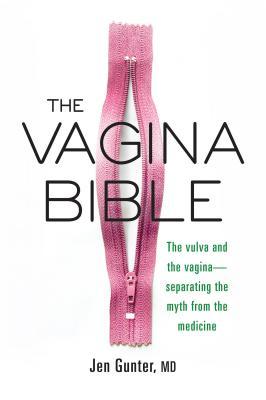
The Vagina Bible: The Vulva and the Vagina—Separating the Myth from the Medicine
Jen Gunter
Questions & Answers
Common misconceptions about the vulva and vagina include the belief in a "vaginal ecosystem" that can be altered by food, the myth of the G-spot, and the idea that certain products, like white cotton underwear, can prevent infections. Dr. Jen Gunter in "The Vagina Bible" dispels these myths by explaining the vulva's and vagina's natural functions, emphasizing the importance of accurate information, and advocating for women's health empowerment. She debunks pseudoscience and patriarchal beliefs, providing evidence-based knowledge to help women understand their bodies and make informed decisions.
Dr. Gunter advocates for women's health and well-being by emphasizing the importance of sexual education and female pleasure in "The Vagina Bible." She debunks myths surrounding women's bodies, particularly the vagina and vulva, and encourages open communication about sexual health. By highlighting the role of the clitoris in female pleasure and advocating for comprehensive sex education, she empowers women to understand and explore their bodies. Gunter also addresses common concerns like vaginal dryness, orgasm, and anal sex, promoting a positive and informed approach to sexual well-being. Her approach is rooted in science, humor, and a commitment to ending misinformation about women's bodies.
Dr. Gunter emphasizes that women's health is influenced by a combination of factors including genetics, environment, and lifestyle. In "The Vagina Bible," she advises on maintaining vulvar and vaginal health by:
- Understanding anatomy: Educating women about their vulva and vagina, emphasizing the importance of the vulva in sexual pleasure and protection.
- Healthy diet: Promoting a balanced diet, as it supports overall health and vaginal microbiome.
- Avoiding harmful products: Advising against vaginal cleaning, douching, and using harsh soaps, which can disrupt the natural pH and microbiome.
- Safe sexual practices: Encouraging the use of barrier methods to prevent STIs and HPV.
- Regular check-ups: Suggesting regular gynecological visits for cervical cancer and STI screenings.
- Pelvic floor exercises: Recommending Kegel exercises for pelvic floor strength, which can help with incontinence and sexual function.
- Avoiding pseudoscience: Debunking myths about vaginal health, such as the idea that certain foods or products can change the vagina's pH or odor.
Dr. Gunter addresses menopause and GSM comprehensively in "The Vagina Bible." She debunks myths, such as the "use it or lose it" theory, and explains the physiological changes during menopause affecting the vulva, vagina, and other areas. She emphasizes the importance of self-advocacy and understanding symptoms, as many women are not diagnosed or treated for GSM. Gunter discusses various treatments, including topical estrogen, vaginal DHEA, and nonhormonal options like ospemifene. She also covers vulvar care, the impact of smoking, and the role of lifestyle factors in managing GSM. Her approach is informative, empathetic, and encourages women to seek appropriate medical care for their symptoms.
Dr. Gunter in "The Vagina Bible" discusses various treatments and interventions for vulvar and vaginal health, each with its own risks and benefits:
Benefits:
- Kegel Exercises: Strengthen pelvic floor muscles, potentially reducing incontinence and improving sexual function.
- Topical Estrogen: Treats vaginal dryness and irritation in menopausal women, though it carries a low risk of endometrial cancer if used with a uterus.
- Probiotics: May help with recurrent bacterial vaginosis, though evidence is limited.
- Vaginal Rejuvenation: Can improve vaginal dryness and incontinence, but risks include unregulated growth and potential complications.
Risks:
- Kegel Exercises: Incorrect technique can lead to pain or injury.
- Topical Estrogen: Risk of endometrial cancer with a uterus, though low.
- Probiotics: May not be effective and can be expensive.
- Vaginal Rejuvenation: Potential for unregulated growth, tumors, and other complications.
- Vaginal Cleansing: Can disrupt the natural flora, increase risk of STIs, and cause irritation.
Dr. Gunter emphasizes the importance of informed consent and the need for accurate information when considering these treatments.